Advanced Electronics Company Moving Saudi Arabia Closer to Knowledge Economy
Dr. Ghassan Al-Shibl, President and CEO of Advanced Electronics Company (AEC)
The issue of a knowledge-based economy is clearly a very critical one for the Kingdom of Saudi Arabia. The beauty of knowledge-based industries lies in their heavy reliance and dependence on human resources. If you look at the composition of the population in the Kingdom, more than 60% of the population is less than 30 years old. We have a very young population, which is one of the most crucial requirements for the development of a knowledge-based econom
Interview with Dr. Ghassan Al-Shibl, President and CEO of Advanced Electronics Company (AEC)
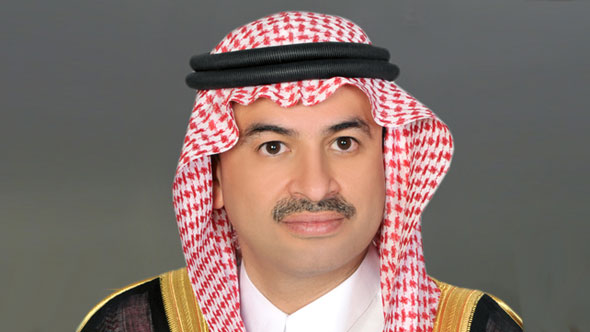
First of all—regarding the offset program—you are one of the success stories of the offset program that primarily aims to ensure technology transfer. Many other countries, such as Kuwait, are running a similar program. Please brief us on the Saudi offset program.
The Saudi economic offset program started in the mid-1980s alongside a major program called Peace Shield Program, which the Ministry of Defence was implementing at that time. The government was seeking ways to diversify the economy and attract more advanced technologies. We realized that many other countries leveraged their major programs in terms of attracting technologies, creating jobs, and thus creating investment opportunities to diversify their economy. The Saudi program was initiated with the objectives of creating job opportunities for Saudis, creating investment opportunities for both local and international investors in Saudi Arabia, and transferring technologies to the country. All these aims clearly contribute to the greater objective, which is the diversification of the Saudi economy from an oil-dependent economy in to one that is diversified.
Advanced Electronics Company (AEC) was one of the companies created under the auspices of the Saudi Economic Offset Program.
Advanced Electronics Company (AEC) was one of the companies created under the auspices of the Saudi Economic Offset Program. Our initial strategy was based on differentiation, i.e. we wanted to target areas that had not yet been targeted. We wanted to completely focus on Saudis Nationals; to create capabilities within the Kingdom. At that time, many of the industries in Saudi Arabia, if not all (with the exception of some government-run entities)—were totally dependent on foreign workers in terms of the work that they do. Therefore, an integral part of AEC strategy was to develop Saudis and to create local capabilities through Saudi Nationals. This was clearly our major differentiating factor.
Another aspect of our strategy was to ensure that quality would not be compromised during the technology transfer. Thus we have put in place quality assurance systems to make sure that whatever we do in the Kingdom of Saudi Arabia is no less good than what is done in the West, from where the technologies are coming from. Quality is a very important conditionality for AEC.
Third, we focused on critical technologies; technologies that are important and make difference for the Kingdom of Saudi Arabia. Hence, at the beginning our start-up was completely dedicated to defence electronics. Subsequently, we began diversifying our capabilities from defence- and security-related technologies to the telecommunications industry. We were able to create significant capabilities with regard to telecommunications and later on with regard to IT. Then we moved into the field of industrial capabilities, where we concentrated on power and energy, developing many of our own products that are now in use.
It is well known that the Saudi economy is dependent on oil, and thus there is certainly a need to diversify and build the knowledge economy. We see different initiatives of e-government—for example, Bahrain is already running its e-government. Is it a challenge to build a knowledge economy in Saudi Arabia? Are there many attempts to do so, and have they been successful?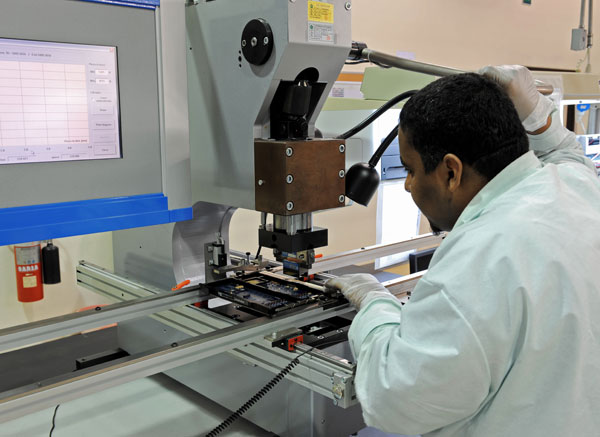
We would be fooling ourselves by claiming that diversifying the economy is an easy task; it undoubtedly is very complex and difficult, because it does not depend on one ingredient only. There are so many ingredients that you have to put together in a synchronized manner to make it happen.
The issue of a knowledge-based economy is clearly a very critical one for the Kingdom of Saudi Arabia. The beauty of knowledge-based industries lies in their heavy reliance and dependence on human resources. If you look at the composition of the population in the Kingdom, more than 60% of the population is less than 30 years old. We have a very young population, which is one of the most crucial requirements for the development of a knowledge-based economy.
Furthermore, the Kingdom has been heavily investing in the educational sector. Different universities are being built in addition to reinforcing existing universities and their capabilities. There is major focus on vocational training, technical training, and so on. All these initiatives aim to build a population of youth that is ready to move into a knowledge-based economy.
In addition, we need to have the know-how—and here lies the opportunity for international companies. There is a great opportunity for international companies to look at this market, which is the largest market in the whole Middle East, and observe the trends and developments within the country. The know-how, which many prominent international companies have, combined with the human resources that exist in the Kingdom of Saudi Arabia, is an opportunity for all interested. By implementing major programs and creating indigenous in-country capabilities, these international companies may develop differentiating factors vis-à-vis their competitors in terms of capturing the majority of the programs in the future. So clearly, the direction towards knowledge-based economy is an important one.
On the other hand, there are many challenges related to the diversification process. There are many stereotypes, for instance about the Saudi population—there are discussions about the level of discipline, the level of commitment, the level of knowledge, the depth in education, etc. However these stereotypes are being reinforced by the environment. Our experience in AEC is that you have to create the right productive environment. It has to be a fully-disciplined environment that is fair in its treatment of all its employees, so there is no favouritism—which is counter to many cultural issues in the Middle East—in attracting new employees, or in the development of employees within the organisation, and that basically all your growth is based on merit. If you create an environment like this, the Saudis will be able to demonstrate that they are extremely productive, highly efficient and effective in what they do, and also extremely intelligent. 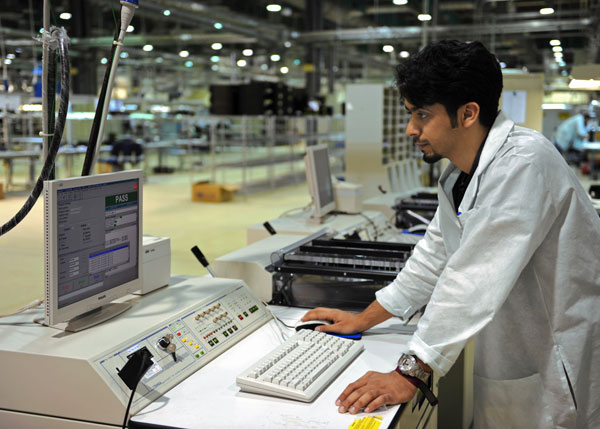
AEC is a profit-making organisation; we are not a charity, we are a business. We would’ be able to rely on 75% of Saudis working in this organisation if they were not showing good results. We build a very good environment. It’s like cooking a great dish; we try to identify our ingredients—human resources and partners who supply us with the technology—and put them together in a way to make it successful and create a productive environment.
One of the main indicators for knowledge economy is the number of patents and innovations. Various studies claim that Saudi Arabia might be lagging behind the real knowledge-based economies in terms of patents. R&D expenditures of both the public and private sectors are considerably lower.
The issue of intellectual property, intellectual property rights, and developing your own IPs is one of the most critical issues directly related to moving into a knowledge-based economy. One of the key reasons why it is critical is the funding stream; how it is funded, and how it is implemented. Today, the expenditure on R&D, and the development of intellectual property rights is not up to the level we would like to see in this country; we are definitely lagging behind.
For various reasons, there is no synchronisation between different research institutions. The relationships between research institutions (both private and public) are not very well established in terms of the linkages, synchronisation, moves, objectives, targets etc. Nevertheless, within AEC we focus heavily on this area because we believe that real differentiation and sustainability in the future depends on having your own indigenous capabilities within the organisation. Our engineering and development department in AEC takes 10% of the resources of the company; 11% of total AEC employees are in our engineering and development department—over 120 engineers and technicians in that department alone—and it is all self-funded. 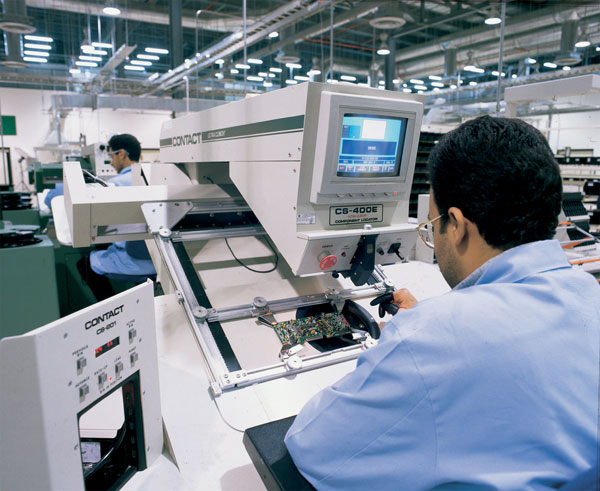
For a company that is a profit-making organisation, the easiest way to look at your bottom line is to write off expenditure that will not give you results until years down the road. But that would be short-sighted. Therefore, AEC’s goal is to make sure that we are moving forward with our development and capabilities by giving them the proper attention, and by allocating all the necessary resources, both financial and human.
Today we have many products and systems that have been developed by AEC and are already implemented. However, the IP registration process remains complex, and it requires simplifying and major efforts in terms of streamlining. However there is enough structure to give confidence to international and local companies that basically there is protection for their rights as they move forward.
Examples of some of the products that have been 100% developed by AEC include digital electricity meters. The current global trend is to move toward digital electricity metering rather than electromechanical meters. We already have our own full range of digital electricity meters that have been implemented and deployed; we are today the largest supplier to the Saudi Electricity Company (SEC) of digital electricity metering. These meters have been designed, developed and manufactured in the Kingdom of Saudi Arabia by Saudi engineers and technicians.
We also have systems related to asset management and vehicle location systems. The largest deployment of these is with the Saudi Public Transport Company (SAPTCO), which is using AEC-developed system to track all their buses in the Kingdom. This also includes analytical tools, such as establishing a command and control centre at SAPTCO to monitor the buses, linking them with ticketing and maintenance. These are two simple examples in relation to what was said above, nevertheless they hold a very deep meaning for us in terms of developing a knowledge-based economy. 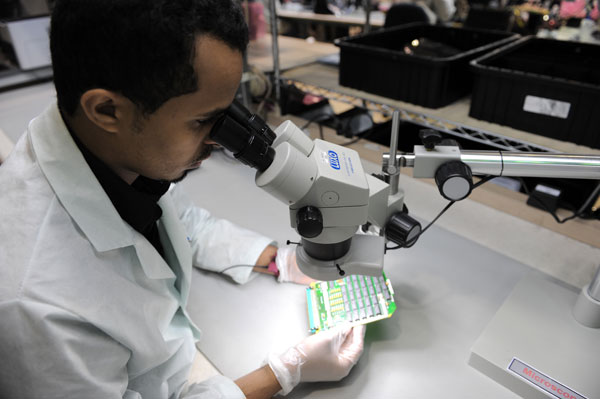
You recently mentioned the ICT spending of Saudi Arabia is set to increase by more than 10% y.o.y. in 2014 to almost 40 billion Saudi riyals. Indeed the ICT segment constitutes a priority for the country, and AEC is positioning itself as the leader, i.e., the leading provider of ICT solutions to companies. Could you give us an overview of the ICT sector in Saudi Arabia? What makes AEC the leading company in this regard?
AEC aims to create capabilities that make a difference to the end customer or the end user. In Saudi Arabia, we rely heavily on international organisations to implement our needs and requirements. Subsequently, throughout the life cycle of the project, we will need international companies to support the products and systems that are being deployed. As I said, one of our primary aims at AEC is to create real capabilities in this country through our nationals and thus bring the support closer to the customer throughout the life cycle of any project in which we become engaged.
We are not agents of companies. Nor is AEC an agent for international companies. Our role with international companies is to make sure that all the programmes we implement have a significant element of technology transfer and contribute to creating in-country capabilities for supporting that product or system. This has always been our key differentiating factor in all the projects in which we have participated. This approach clearly differentiates us from many other ICT organisations in the country; the others are rather PM organizations than technical.
AEC provides full-fledged support. We depend on Saudi human resources. We are closer to the customer. We live in the country, our company resides in the country, and therefore we understand the needs and requirements. Whatever solution we provide to the end customer, it’s a solution that is much more valuable than any other solution that may be offered.
Concerning ICT and defence, what are AEC’s major ongoing projects in this particular area?
AEC has been engaged in a project with, for instance, Saudi Telecom, on the deployment of all their data networks. We have also been involved in major projects in the defence segment, which involve IT and deployment in different locations within the Kingdom of Saudi Arabia. Furthermore, we have great experience with interconnecting those projects or replacing many of the existing systems that utilize the radio spectrums used by GSM during the telecom liberalization in Saudi Arabia, when the country was giving out licenses to ensure multiplicity of service providers.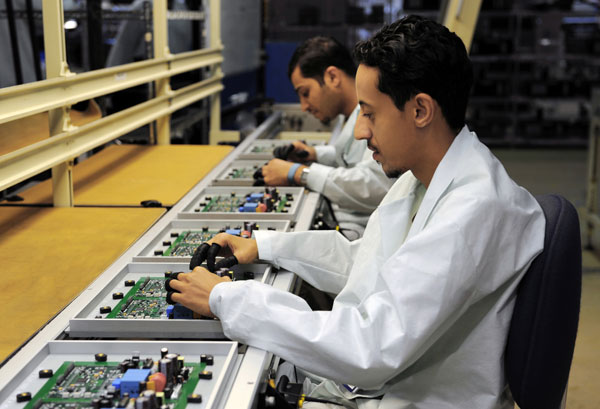
Finally, in more general terms, what would be your vision and outlook for the Saudi economy? Are you rather optimistic?
Definitely! If we look at all the fundamentals related to the Saudi economy, I do’ think we have any other option but to be positive and optimistic about our future.
In my opinion, the fundamentals of Saudi economy are extremely strong. Whether we consider revenue, reserves, or debt ratio—all these variables are extremely encouraging.
Second, apart from those figures, we have to take into account the steps that have been taken by the government to enhance the economy. On the legal side, there has been a total revamping to give comfort to those doing business in the Saudi Arabia. On the financial side, when we look at the financial institutions in Saudi Arabia, they are governed by strict rules and regulations, which are actually considered to be among the best in the world.
Third, the best evidence of the prosperity of Saudi economy is the country’s performance during the global financial crisis. The Kingdom’s financial institutions were spared most of the problems linked to the recession.
Also, we need to critically reflect on the development of human resources. A significant portion of the Kingdom’s budget goes into education, which is extremely important. This creates tremendous opportunities not only in terms of having the right human resources in place, but also in terms of opportunities to implement projects as a part of the modernization process. The modernization process entails a gradual move toward education that is heavily engaged with technology, and makes use of different electronic tools, electronic systems, administration systems etc.
I believe the opportunities in terms of the growth and prosperity of Saudi Arabia are tremendous, and I think there is room for everybody to contribute to our future. All it takes is a commitment to this country and an understanding of the sensitivities that the government is trying to focus on, primarily employment. Whatever we do, we have to ensure that it creates proper job opportunities for Saudi nationals.